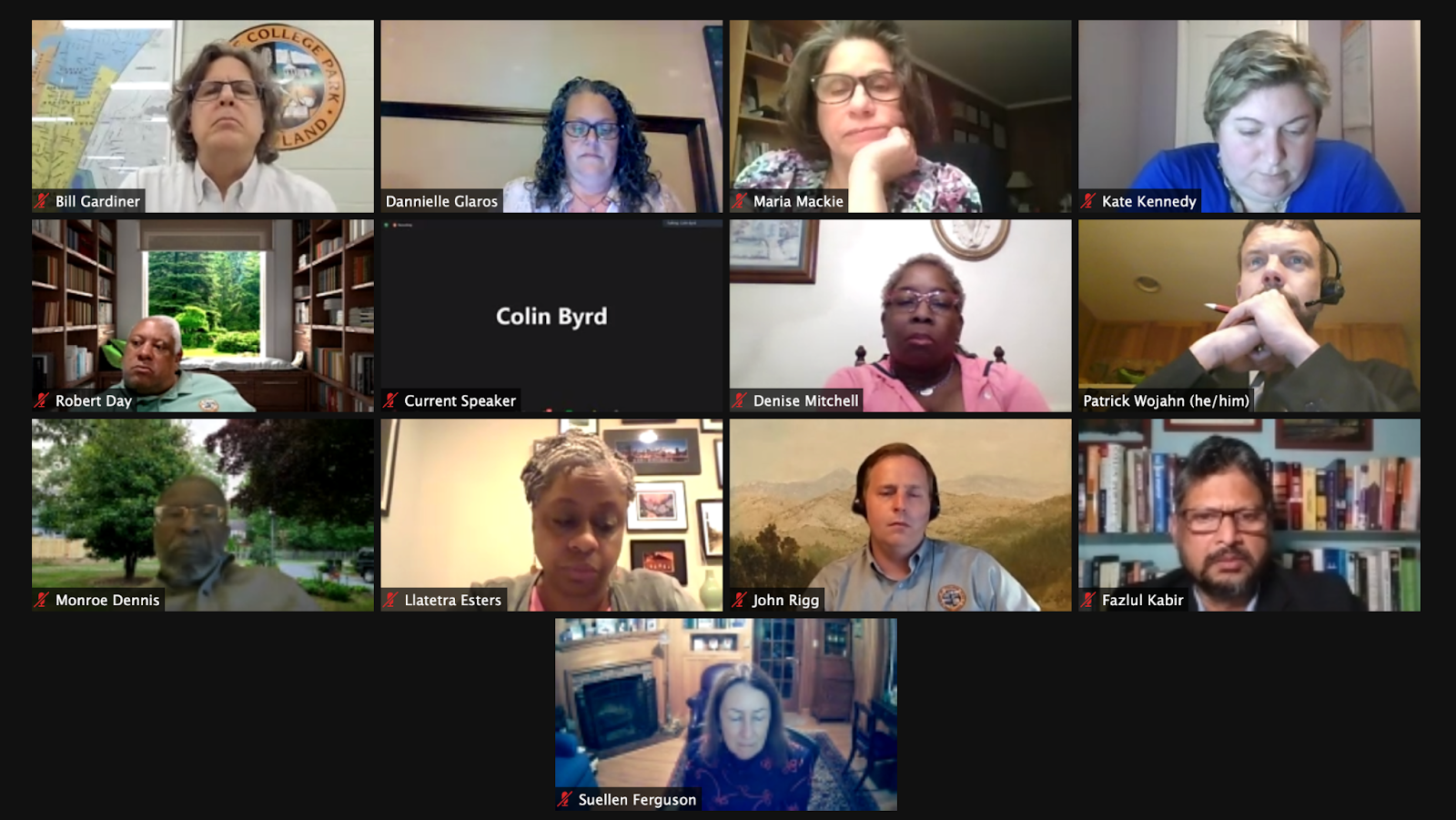At its virtual meeting Tuesday, the College Park City Council voted unanimously to provide the city of Greenbelt with legal counsel funds to oppose a proposed maglev train project.
The proposed project would build a 40-mile high-speed rail between Washington, D.C., and Baltimore. The council will contribute $10,000 in response to a request by Greenbelt to obtain legal counsel to oppose the project.
The project — SCMaglev — is part of Northeast Maglev’s larger vision to connect various cities in the northeastern United States. The D.C.-area portion of the project is estimated to take seven years to construct. Construction in Prince George’s County would last from three to four years, said Dannielle Glaros, District 3 Prince George’s County Council member.
In the past few months, the project has faced significant backlash for potential negative environmental impacts.
In a presentation to the College Park City Council, Glaros detailed the environmental justice issues that would arise in the area from the maglev.
[College Park City Council plans to redesign bike lanes to make cycling safer]
One concern is the projected 23 million cubic yards of material that would need to be excavated to build both the underground and aboveground portions of the project, Glaros said at the meeting. She added that Prince George’s County residents have also raised concerns about potential challenges for stormwater management, noise and vibration, as well as water and power disruptions.
“Some of the construction is actually way more intense than the construction that has ever been experienced from the Purple Line,” Glaros said.
The maglev would also interrupt existing public transit and harm those who rely on it, said Greenbelt Mayor Colin Byrd.
“This project would devastate Amtrak, and so folks that are interested in broader public transportation issues should be mindful of the broader ecosystem in which this train creates challenges for other systems that we know, value and use,” he said.
Other municipalities in the area have also joined Greenbelt in voicing their opposition to the maglev.
“We have similar concerns with the maglev train on the environmental side … and we must advocate to protect those passions in our communities,” said Takisha James, mayor of Bladensburg. James urged the council to “keep in mind that the economic benefits that are being promised are not as advertised.”
[In a sea of pricey rentals, CHUM is a beacon of housing affordability for UMD students]
Not all in College Park supported the council’s decision to provide Greenbelt with legal fees. College Park resident Mary King said Byrd’s comments against the project were too vague to warrant monetary support at this point.
“I agree that the maglev is just awful, but I don’t agree that we should be giving them money, and I think we ought to be pursuing other ways to demonstrate that we are against this project,” she said.
District 3 Council member John Rigg acknowledged that most of the concerns with the maglev would not directly affect College Park, but he voiced his support for the funds.
“This is a reasonable solidarity payment to make sure that the efforts continue forward and to address the indirect environmental concerns … with a unified voice,” he said.
The Federal Railroad Administration and Maryland Department of Transportation have prepared a Draft Environmental Impact Statement about the maglev project. The DEIS will remain open for public comment until May 24, according to the project’s website.



